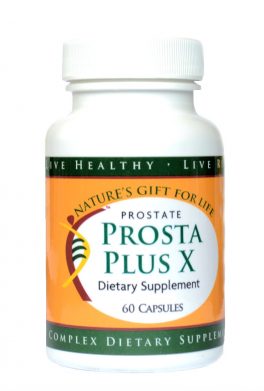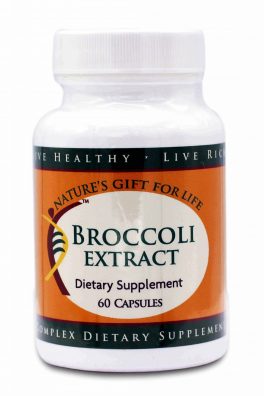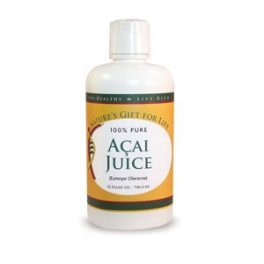Prostate
DOCTORS RECOMMENDED PRODUCTS
-
Prostate
Prosta Plus X(Prostate)
0 out of 5(0)
Benefits of this product for Prostate- A natural solution designed to support normal prostate size, healthy prostate function, and free urinary flow
- Acts directly on the prostate to reduce the pain and inflammation associated with enlarged prostate
>>>Read More
SKU: n/a25,025CFA -
Prostate
Acai Juice (Prostate)
0 out of 5(0)Benefits of this product for Prostate
- A powerful weapon in the fight against benign prostatic hyperplasia
- Contains a healthy dose of plant sterols, another class of phytochemicals that have been shown to relieve prostate enlargement
>>>Read More
SKU: n/a39,435CFA - A powerful weapon in the fight against benign prostatic hyperplasia
Benign prostatic hyperplasia (BPH), also known as benign prostatic hypertrophy, is the non-cancerous enlargement of the prostate gland. A part of the male reproductive system, this walnut-sized gland is located just below the bladder and behind the front wall of the rectum. Usually about one inch (2.5 cm) across, it surrounds the urethra which carries urine from the bladder to the penis.
The main function of the prostate gland is the production of prostatic fluid, a main component of the fluid that lubricates the urinary tract, nourishes sperm, and comprises semen ejaculate. Prostate gland enlargement is not considered a disease. Rather, it is a normal part of the aging process caused by common hormonal and cell growth changes. The exact cause of benign prostatic hyperplasia is unknown. It is possible that the condition is associated with hormonal changes and nutritional deficiencies that occur as men age.
The testes produce the hormone testosterone, which is converted to dihydrotestosterone (DHT) and estradiol (estrogen) in certain tissues. As a man ages, testosterone levels decrease while estrogen and DHT levels increase and he tends to become more vulnerable to the effects of these hormones. How and why levels of DHT increase remains a subject of research. DHT stimulates cell growth, causing prostate cells to multiply and increase the size of this gland. It becomes a medical issue when the prostate grows large enough to obstruct the urethra, the canal that carries urine from the bladder to the tip of the penis.
The risk of BPH increases with age. 5-10% of men aged 30 have dealt with enlarged prostate; BPH affects more than 50% of men over age 50 and as many as 90% of men over the age of 70. It is simply a component of the natural aging process.
The severity of symptoms is directly related to the extent of enlargement and may include:
• Recurrent, sudden, urgent need to urinate and involuntary discharge of urine
• Frequent urination, especially at night (i.e., nocturia)
• Difficulty emptying the bladder
• Difficulty starting the urine stream, even when the bladder feels full leading to pushing or straining to begin urination
• A hesitant, interrupted, weak urine stream caused by decreased force
• Feeling like the bladder is not completely empty after urination
• Dribbling and leakage of urine after voiding (i.e., overflow incontinence)
• Blood in the urine (i.e., hematuria), caused by straining to void
• Pain in the lower abdomen between the scrotum and anus
• Fever, a burning sensation or pain during urination
• Impotence – prostate enlargement can interfere with the ability to attain and sustain erections resulting in male impotence (erectile dysfunction)
Though the condition is usually minor, severe BPH can cause serious problems over time. Urine retention and strain on the bladder can lead to urinary tract infections, bladder or kidney damage, bladder stones, and incontinence (the inability to control urination). If the bladder is permanently damaged, treatment for BPH may be ineffective. When BPH is found in its earlier stages, there is a lower risk of developing such complications. It is important to tell your doctor about urinary problems such as those described above.
In eight out of 10 cases, these symptoms suggest BPH, but they also can signal other, more serious conditions that require prompt treatment. These conditions, including prostate cancer, can be ruled out only by a doctor’s rectal examination and a PSA blood test. PSA, a protein produced by prostate cells, is frequently present at elevated levels in the blood of men who have prostate cancer.
Healthy Things You Can Do
• Urinate when you first get the urge, then relax and take your time completely emptying your bladder.
• Go to the bathroom whenever you have the opportunity, even if no urge is present.
• Avoid alcohol (particularly beer) and caffeine, especially after dinner.
• Drink plenty of water. Drink 50% of your body weight in ounces of water daily (e.g., if you weigh 150 lbs, drink 75 oz of water daily). But, do not drink within two hours of bedtime, and spread fluid intake throughout the day.
• Stop smoking. Tobacco smoking increases the risk of enlarged prostate.
• Avoid cold and sinus medications which can worsen BPH symptoms.
• Exercise regularly and reduce stress.
• Enjoy regular sexual activity which exercises the prostate gland.
• Learn and perform Kegel exercises to strengthen the pelvic floor.
• Eat whole, low-fat, fresh, unrefined, and unprocessed foods. Include fruits, vegetables, whole grains, soy, beans, seeds, nuts, olive oil, cold-water fish (salmon, tuna, sardines, halibut, and mackerel) and lean meats. Eating organic food helps reduce exposure to hormones, pesticides, and herbicides.
• Try to keep your cholesterol below 220. Avoid margarine, hydrogenated vegetable oils, and fried foods, as they can interfere with prostaglandin metabolism
• Avoid refined sugar and flour, dairy products, refined foods, fried foods, junk foods, and hydrogenated oils.
• Determine and eliminate food sensitivities.



